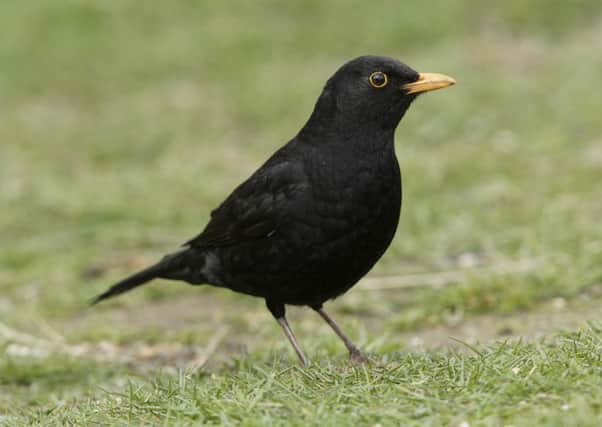Country & Coast: Human intervention will see birds burst into song early


At the weekend there were two of them singing at opposite ends of my gym car park in the Aire Valley. Yet these evening performances used to begin in February, when males would appear on chimneys, telegraph poles or the topmost branches of trees and tell other males in their breeding territory to push off elsewhere.
It is something they do in the most musical way of all British birds with the possible exception of the nightingale, the loud song consisting of a mellifluous string of notes which analysis has proved have tiny variations for each individual blackbird. Traditionally, they would sing each evening until around the time of the Wimbledon fortnight, when the last of their chicks were safely hatched, and then fall silent.
Advertisement
Hide AdAdvertisement
Hide AdBut the male blackbird’s song at dusk now begins earlier in the year, and in some locations it continues late into the summer.
In his classic book on bird song ‘The Charm of Birds’ published in 1927, the one-time British foreign secretary and keen amateur ornithologist Sir Edward Grey puzzled over hearing blackbirds still in song around a London park in late July while they were silent around his home in the north of England.
“Why this should have been so is not easy to guess,” he wrote.
“It may have been a bird, let out from a cage, that had not mated and had escaped the exertions of the breeding season, and thus retained its vigour.”
Advertisement
Hide AdAdvertisement
Hide AdModern ornithology has supplied the answer to Grey’s puzzle - street lighting. Urban blackbirds sing earlier and later in the year because the artificial light interferes with their body-clocks.
This interference seems to be particularly the case around well-lit car parks, and in such conditions during winter you can forgive blackbirds for thinking that the light nights have finally arrived.
This can trigger the whole blackbird mating game in December, and before Christmas I watched a glossy-coated male in the pretty unambiguous pursuit of a brown female around the churchyard of All Saints’ at Otley, West Yorkshire.
The activity can lead to early breeding if there is no sudden icy snap to reset body-clocks, with nests built in the first days of January.
Advertisement
Hide AdAdvertisement
Hide AdDuring a very mild winter a decade ago blackbirds were seen feeding their young in Cheshire on February 2, meaning the first eggs must have been laid before New Year’s Day.
But urban lighting cannot explain why some other birds now nest earlier than usual.
For example, rooks have advanced their breeding season by as much as a fortnight over the last couple of decades, with many nests now occupied in February rather than the normal time of mid-March.
Perhaps, as some believe, these evolving habits are another indication of climate change.